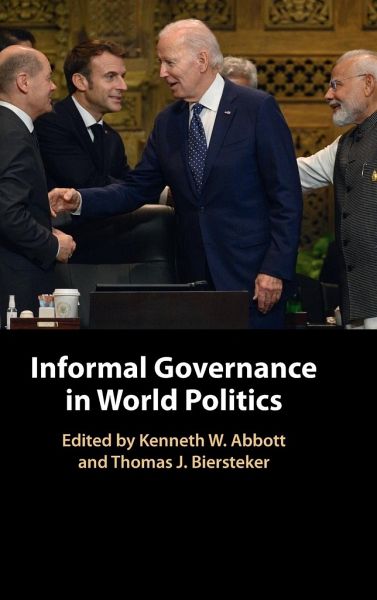
Informal Governance in World Politics
Versandkostenfrei!
Versandfertig in 1-2 Wochen
92,99 €
inkl. MwSt.
Weitere Ausgaben:

PAYBACK Punkte
46 °P sammeln!
Throughout the nineteenth and twentieth centuries, cooperation among nations was based on international regimes and formal intergovernmental organizations. However, since the 1990s, informal modes of global governance, such as informal intergovernmental organizations and transnational public-private governance initiatives, have proliferated. Even within formal intergovernmental organizations, informal means of influence and informal procedures affect outcomes whilst, around all these institutions, even more informal networks shape agendas. This volume introduces and analyzes these three types ...
Throughout the nineteenth and twentieth centuries, cooperation among nations was based on international regimes and formal intergovernmental organizations. However, since the 1990s, informal modes of global governance, such as informal intergovernmental organizations and transnational public-private governance initiatives, have proliferated. Even within formal intergovernmental organizations, informal means of influence and informal procedures affect outcomes whilst, around all these institutions, even more informal networks shape agendas. This volume introduces and analyzes these three types of informality in governance: informality of, within, and around institutions. An introductory chapter traces the rise of informal governance and suggests a range of theoretical perspectives and variables that may explain this surge. Empirical chapters then apply these and other explanations to diverse issue areas and cross-cutting issues, often using newly developed datasets or original case study research. The concluding chapter sets out a research agenda on informality in global governance, including its normative implications.














